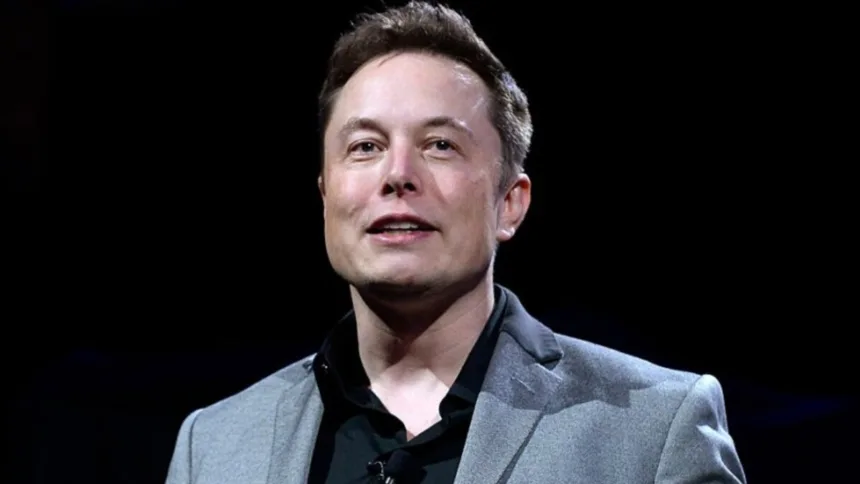Elon Musk, the CEO of Tesla and SpaceX, has once again made waves with a bold proposal that targets the efficiency of the United States federal workforce. Alongside Vivek Ramaswamy, a former presidential contender, Musk has put forward a controversial plan that could lead to the dismissal of federal employees who fail to report to work in person five days a week. This move is part of a broader strategy to trim down the federal budget and streamline government operations. Musk’s remarks are stirring debates about the future of remote work, government spending, and the role of federal employees in a post-pandemic world.
The Proposal: No Remote Work, Five Days in the Office
Elon Musk’s proposal is simple but stark: federal employees must return to the office five days a week or risk losing their jobs. He argues that the privileges granted during the COVID-19 pandemic, including the option to work remotely, should no longer apply to federal workers. For Musk and Ramaswamy, allowing government workers to continue working from home indefinitely is a luxury that American taxpayers should no longer fund.
The call for in-person work is part of a larger plan to reform federal agencies and cut down on government expenditures. Elon Musk and Ramaswamy believe that the continued remote work arrangements are contributing to inefficiencies and unnecessary spending. In their view, the practice has created a culture of complacency, where some workers are either not fulfilling their duties or are operating below their potential.
ELON MUSK’S FIRST ORDER OF BUSINESS IN TRUMP ADMINISTRATION: KILL REMOTE WORK (Fortune)
Donald Trump appointee Elon Musk unveiled his first blueprint to radically shrink the federal bureaucracy, which includes a strict return-to-office mandate. This, he says, would save… pic.twitter.com/lYCzwjAd6b
— FXHedge (@Fxhedgers) November 22, 2024The Push for Government Efficiency
At the heart of Elon Musk proposal is a desire to create a more efficient and cost-effective government. Both Musk and Ramaswamy have voiced their concern over the bloated nature of the federal workforce and the mismanagement of taxpayer funds. The two men have been appointed by President-elect Donald Trump to head the newly established Department of Government Efficiency (DOGE). This department’s primary objective is to reduce the federal budget by an estimated $2 trillion by targeting inefficiencies within federal agencies.
The department’s mandate includes reorganizing government operations, cutting wasteful spending, and enacting policies that prioritize accountability and performance. Musk and Ramaswamy believe that by enforcing stricter attendance policies, they will increase the productivity of federal employees and reduce the long-standing issue of wasteful government spending.
In a joint statement, Musk and Ramaswamy made it clear that their goal was to implement significant changes across the federal bureaucracy. They stated, “If federal employees don’t want to show up, American taxpayers shouldn’t pay them.” This statement emphasizes their belief that government workers should be held to the same standards as employees in the private sector, where remote work is often seen as a privilege rather than a right.
Legal Framework and the Potential for Large-Scale Firings
Musk and Ramaswamy’s proposal does not come without legal challenges, as it involves a fundamental shift in how federal employment is structured. However, the duo is confident that the legal framework supports their initiative. Civil service regulations allow for “reductions in force” that do not specifically target individual employees but rather address broader inefficiencies. In other words, they have the legal authority to initiate large-scale workforce reductions without violating any employment laws.
The pair also notes that the President has the power to implement reforms in the federal workforce through executive orders. They argue that President Trump, with a strong electoral mandate and a 6-3 conservative majority in the Supreme Court, is in a favorable position to enact sweeping changes to how the federal government operates.
According to Musk and Ramaswamy, the scope of these changes could include large-scale firings of federal workers who are not meeting performance expectations or who are unwilling to return to the office. Additionally, they suggest that some federal departments could be relocated outside of Washington, D.C., to reduce costs and improve efficiency.
Aimed at Saving Trillions in Taxpayer Dollars
One of the most significant aspects of Musk and Ramaswamy’s plan is its potential to save taxpayers trillions of dollars. The duo has set their sights on cutting wasteful spending within the federal government, particularly the more than $500 billion annually that is either mismanaged or unauthorized by Congress. These funds, they argue, could be better utilized to serve the American people, rather than supporting inefficient federal operations.
Musk and Ramaswamy contend that the federal government’s reliance on remote work has led to a bloated workforce and reduced productivity, further contributing to this wasteful spending. By requiring federal employees to return to the office and ensuring that government operations are running at peak efficiency, they believe they can make significant strides toward reducing the federal deficit and alleviating the burden on taxpayers.
Reactions and Controversies
Musk’s proposal has sparked a wide range of reactions, both in support and opposition. Supporters of the plan argue that it is long overdue and that federal workers need to be held accountable for their performance. They also believe that returning to the office will help restore a sense of discipline and urgency within the federal workforce.
On the other hand, critics of the proposal have raised concerns about the feasibility and fairness of such a drastic measure. Some argue that remote work has proven to be an effective and productive option for many employees, and that forcing workers to return to the office could disrupt their work-life balance and lead to lower morale.
Furthermore, opponents of Musk’s plan suggest that the focus should be on improving the quality of government services and reducing inefficiencies, rather than imposing strict attendance policies. They argue that there are other, more effective ways to streamline government operations without resorting to large-scale firings or mandatory office attendance.
Conclusion
Elon Musk’s proposal to require federal employees to return to the office five days a week is part of a larger effort to overhaul the federal government and cut down on unnecessary spending. While the plan has sparked controversy, it also highlights the growing frustration with the inefficiencies and waste within the government. With the backing of Vivek Ramaswamy and a potential ally in President Trump, Musk’s vision for a more efficient federal government could have far-reaching implications for how the U.S. federal workforce operates in the future. Only time will tell if these bold proposals will come to fruition, but one thing is certain: Musk’s push for change is far from over.
Read More : Bitcoin’s Rocket Ride: Can We Trust This Surge, or Is It Just a Repeat of 2021?






